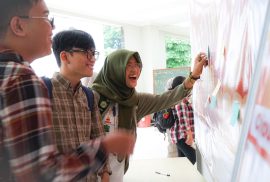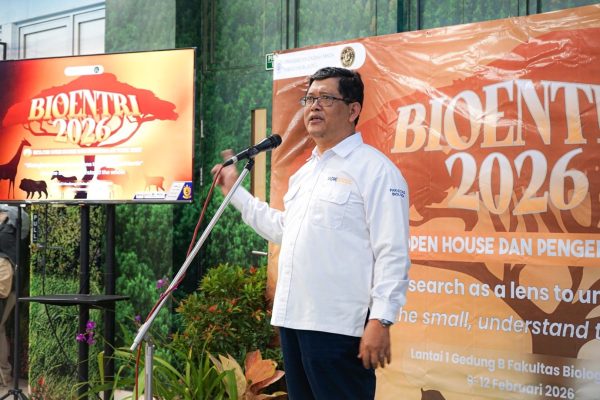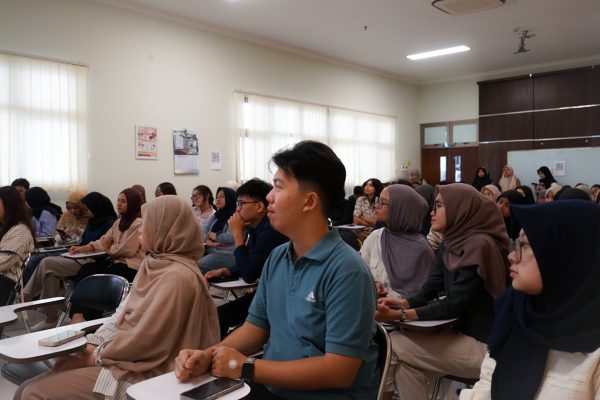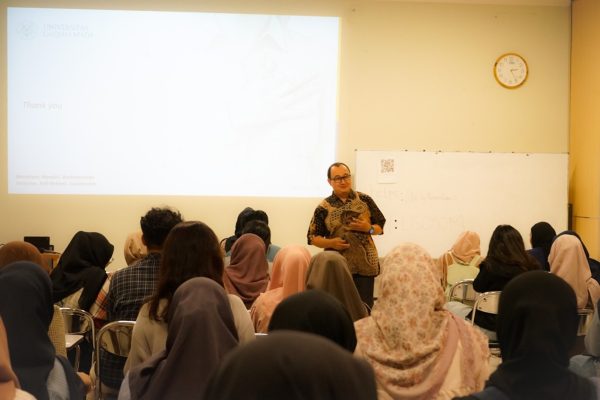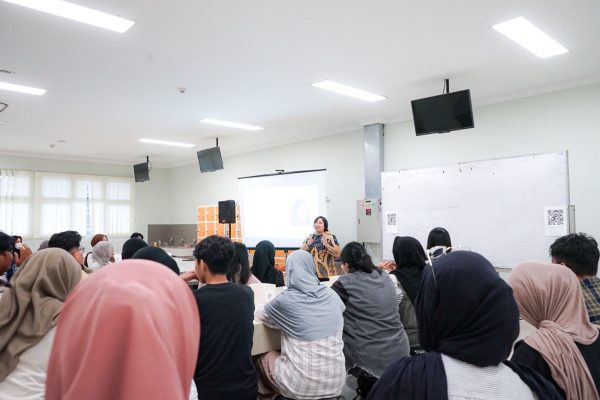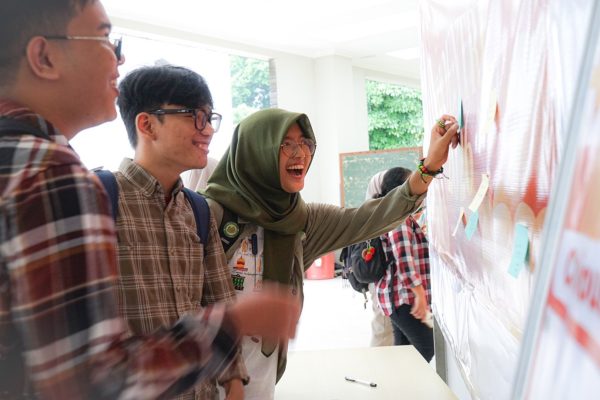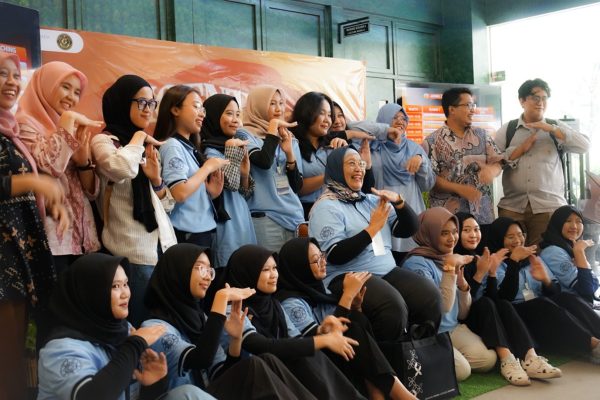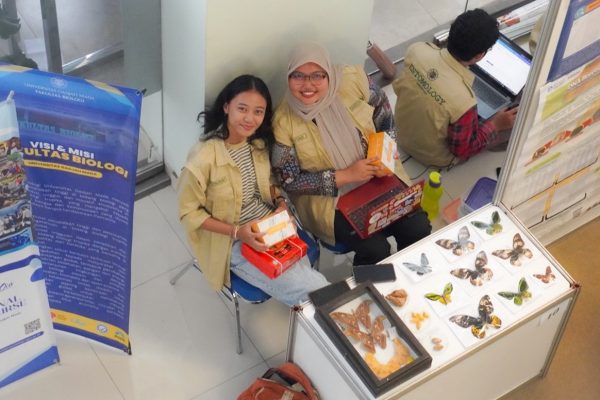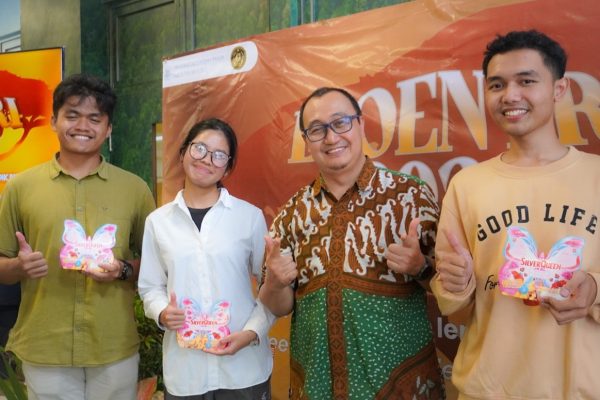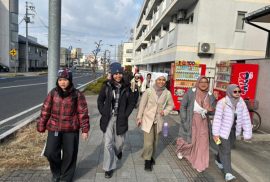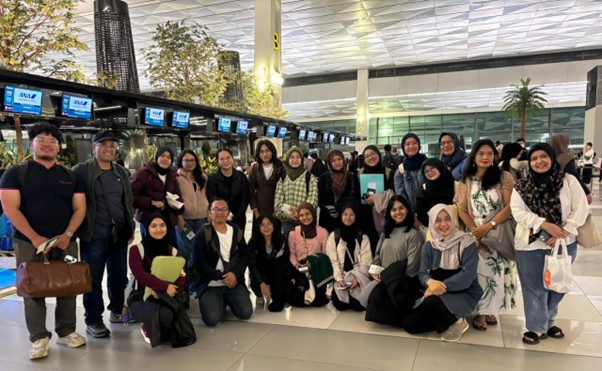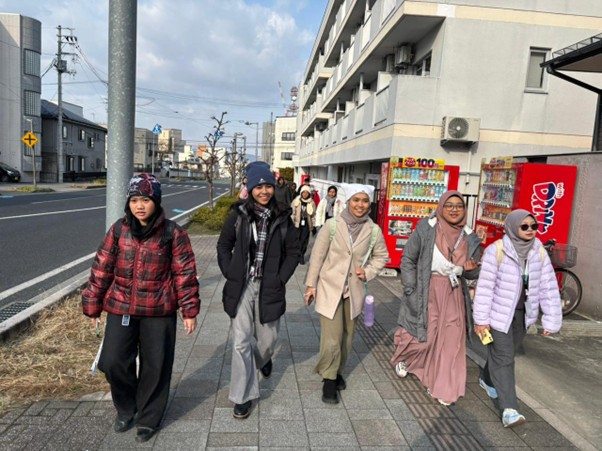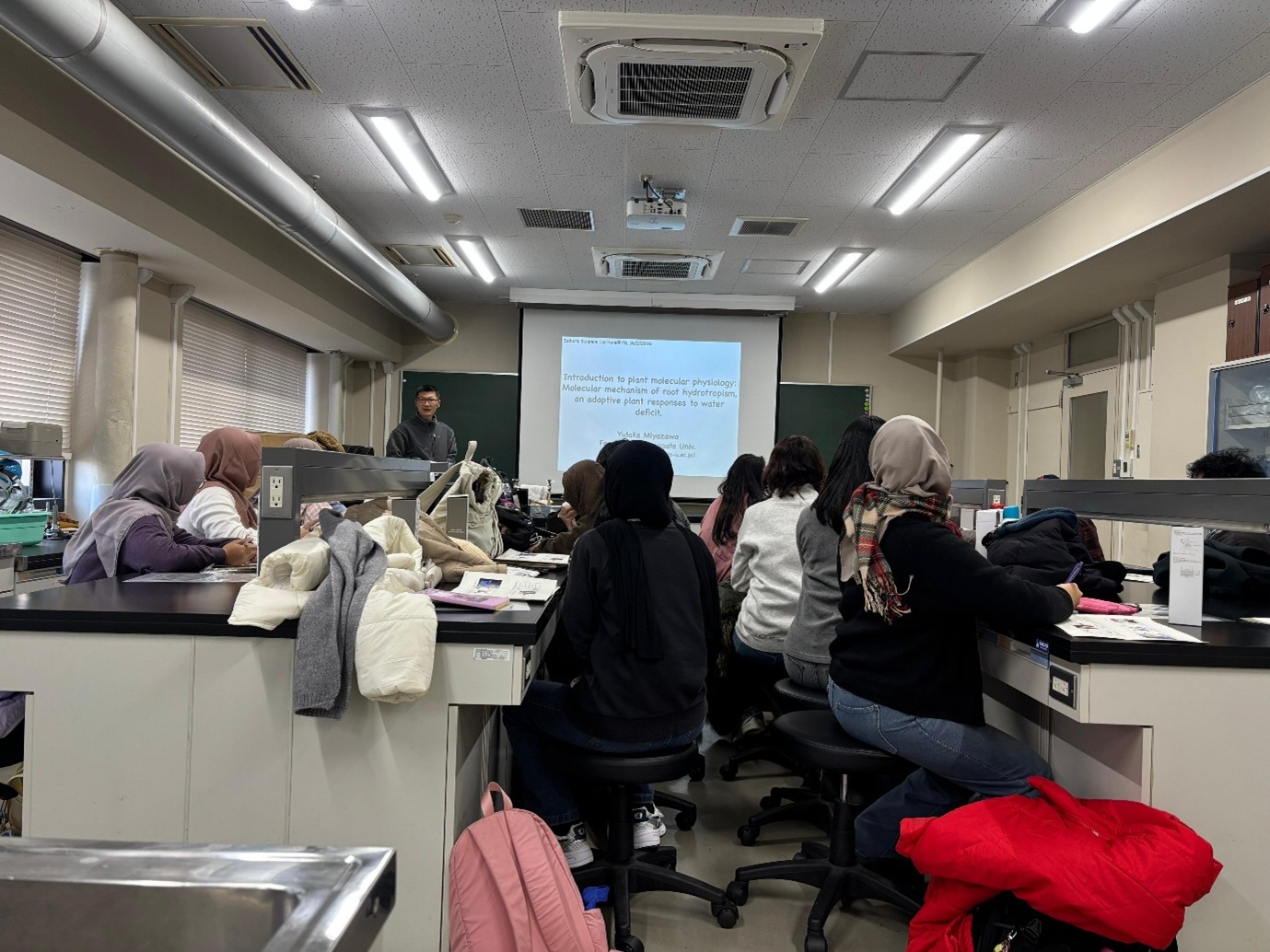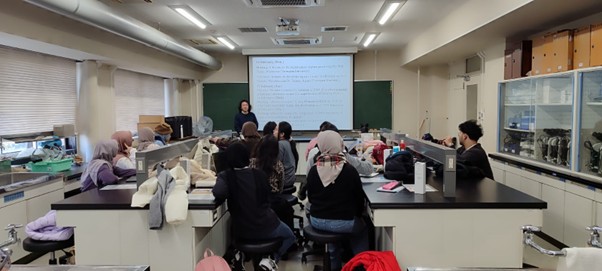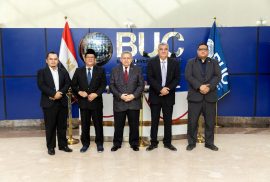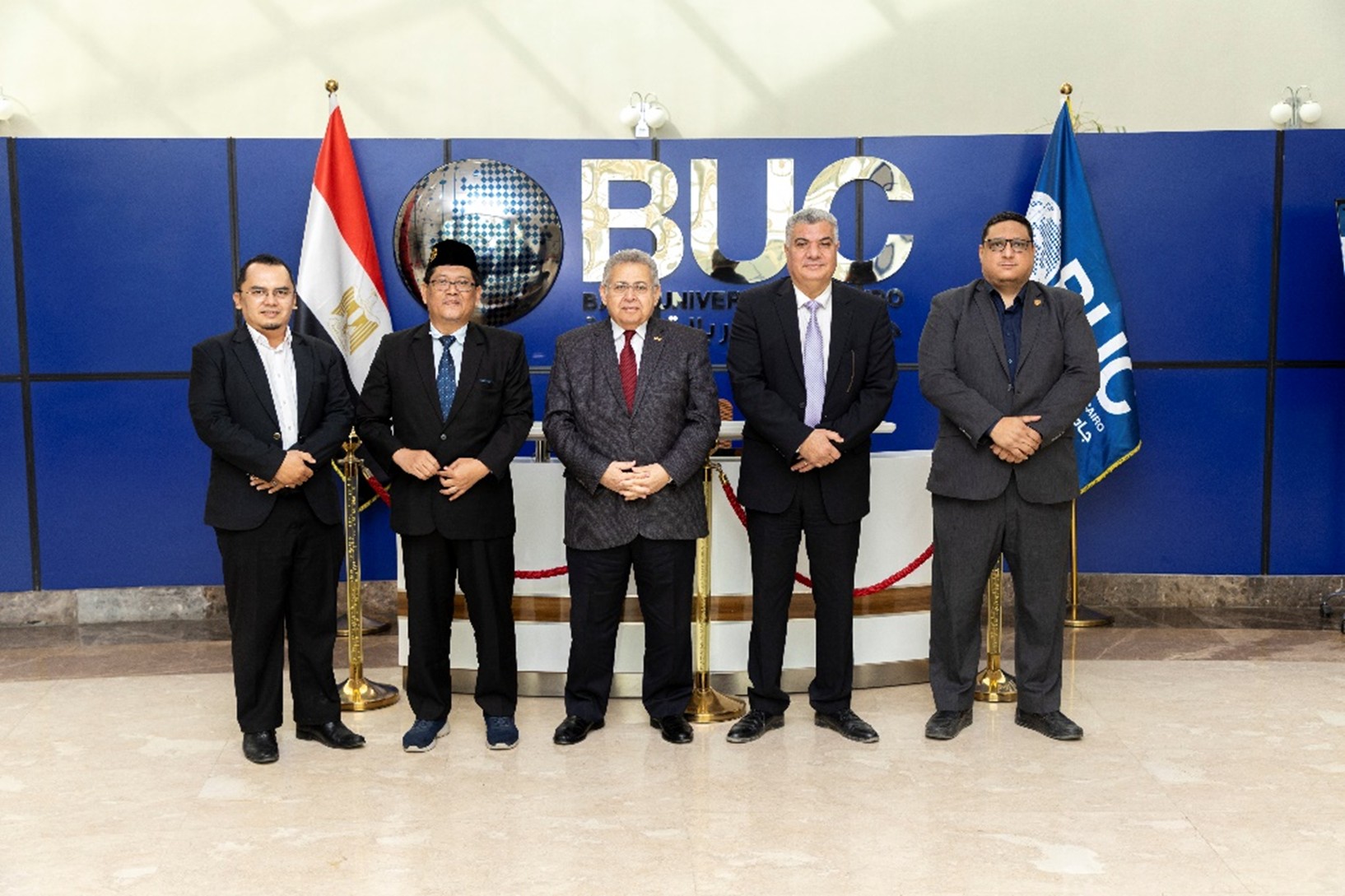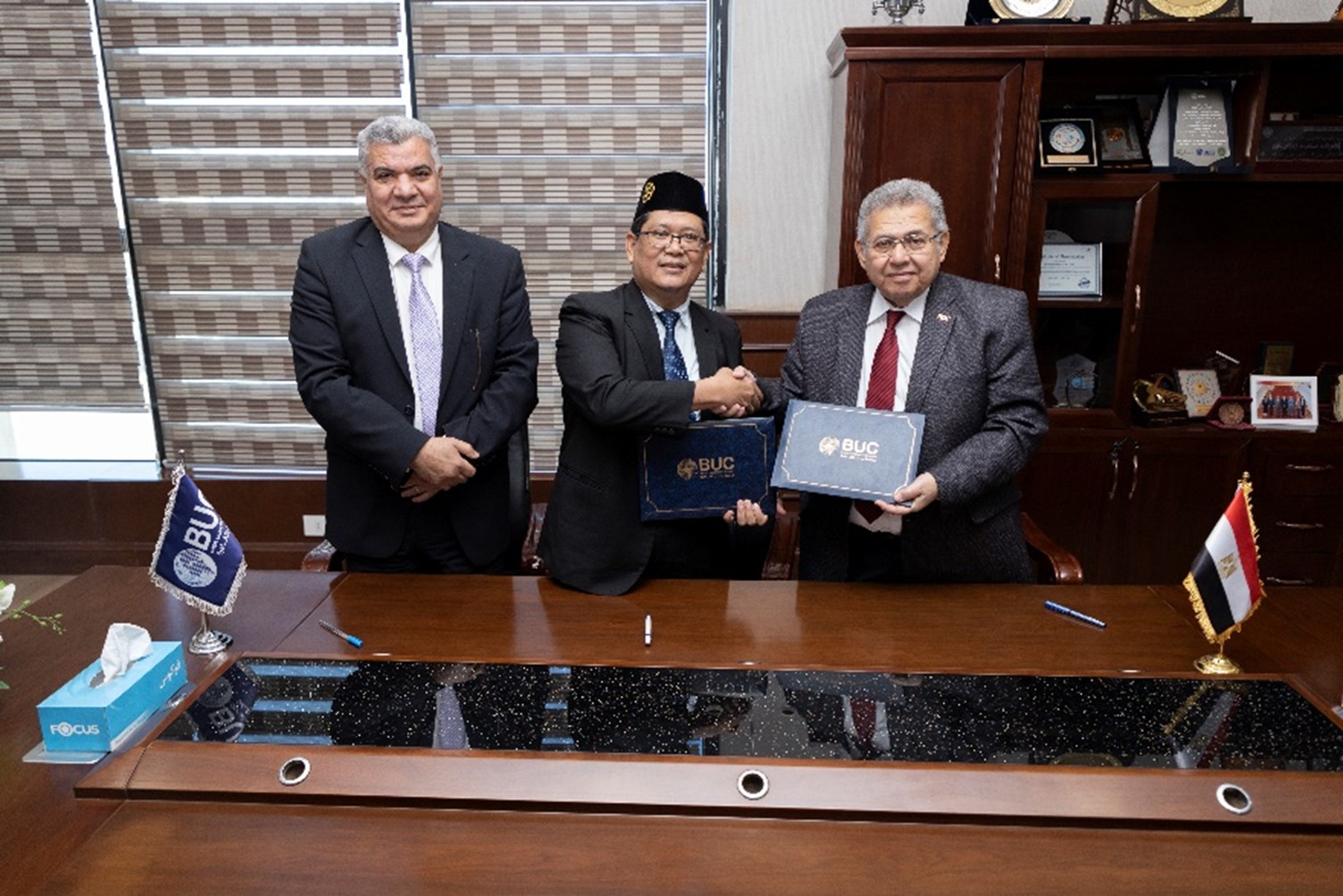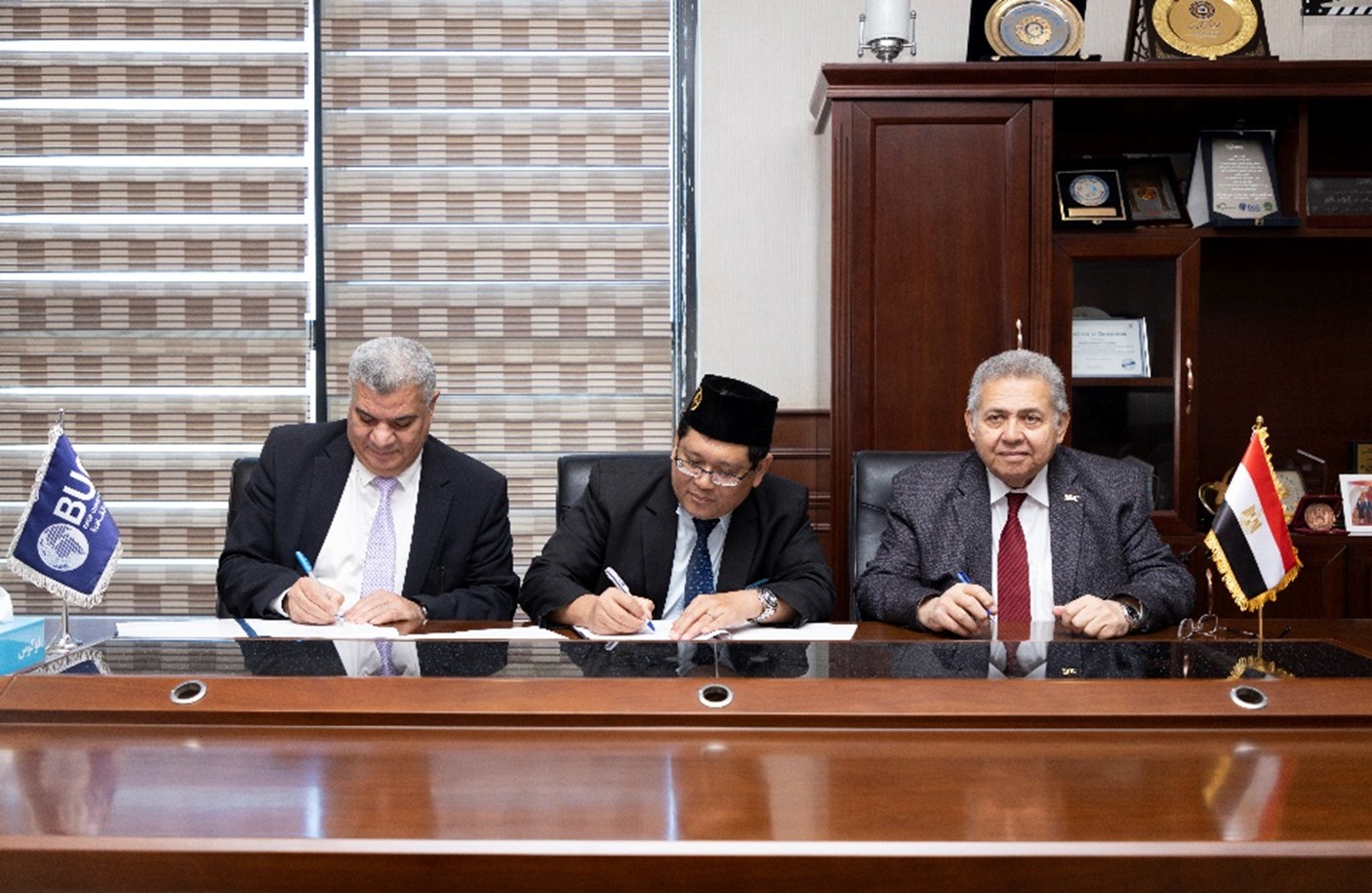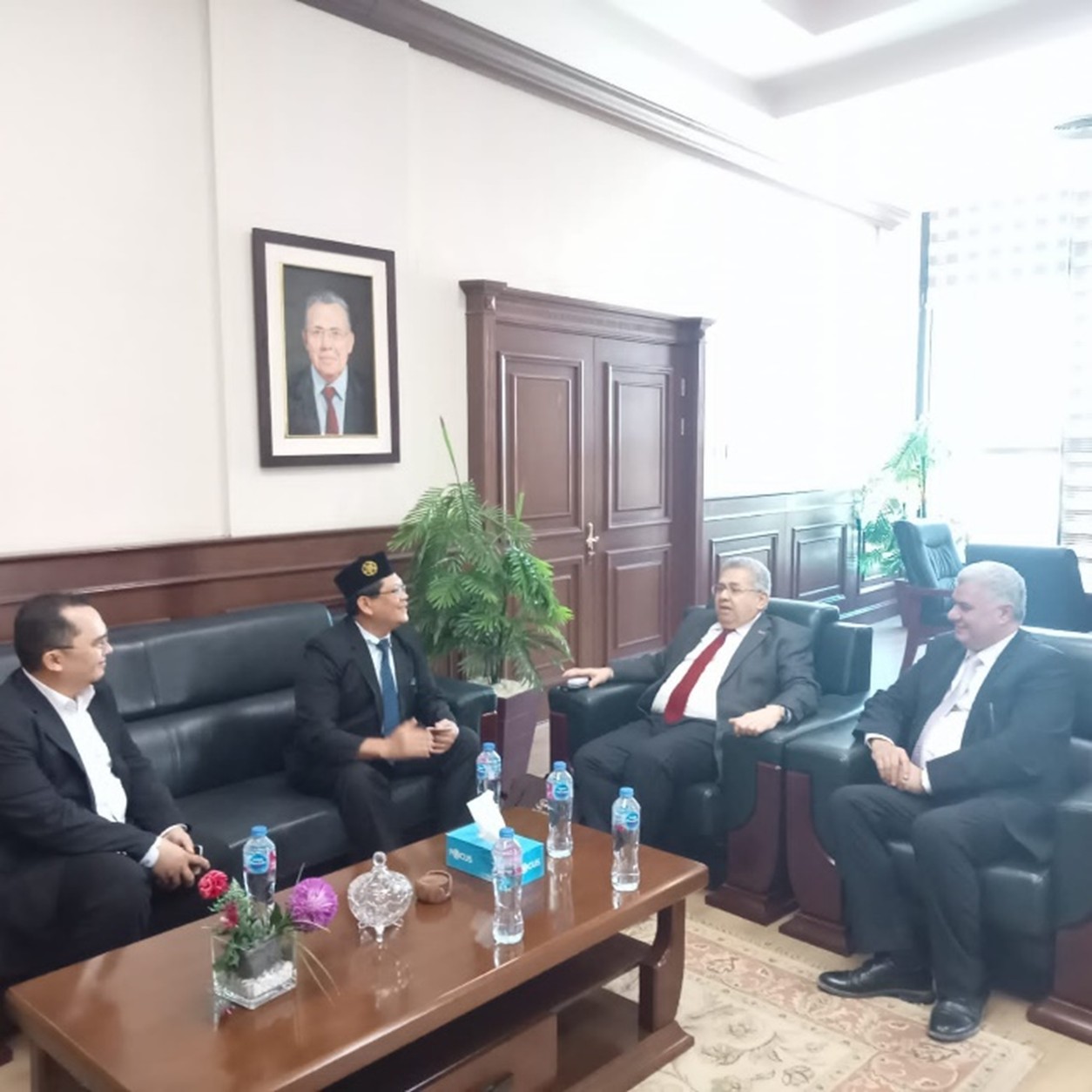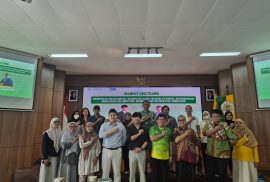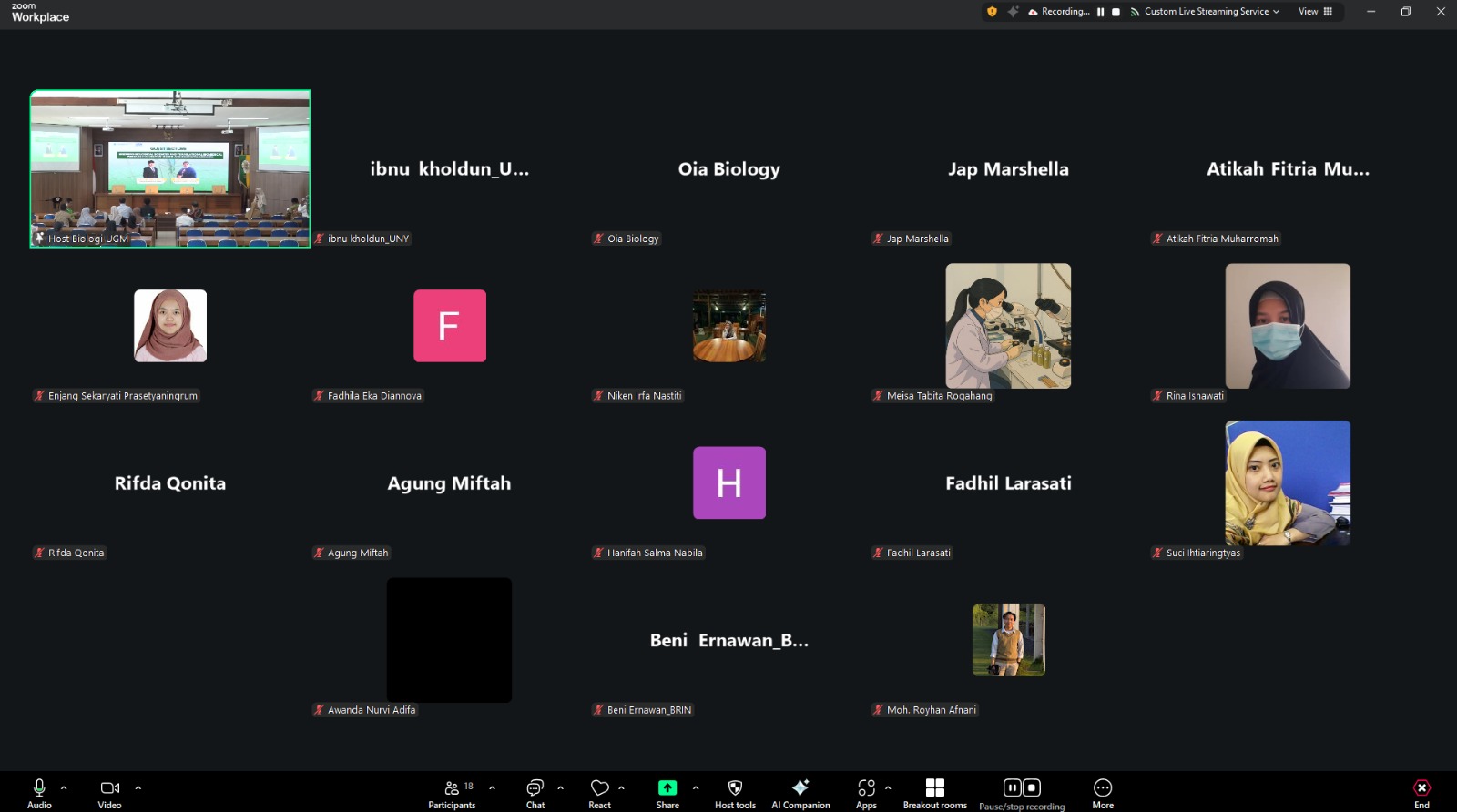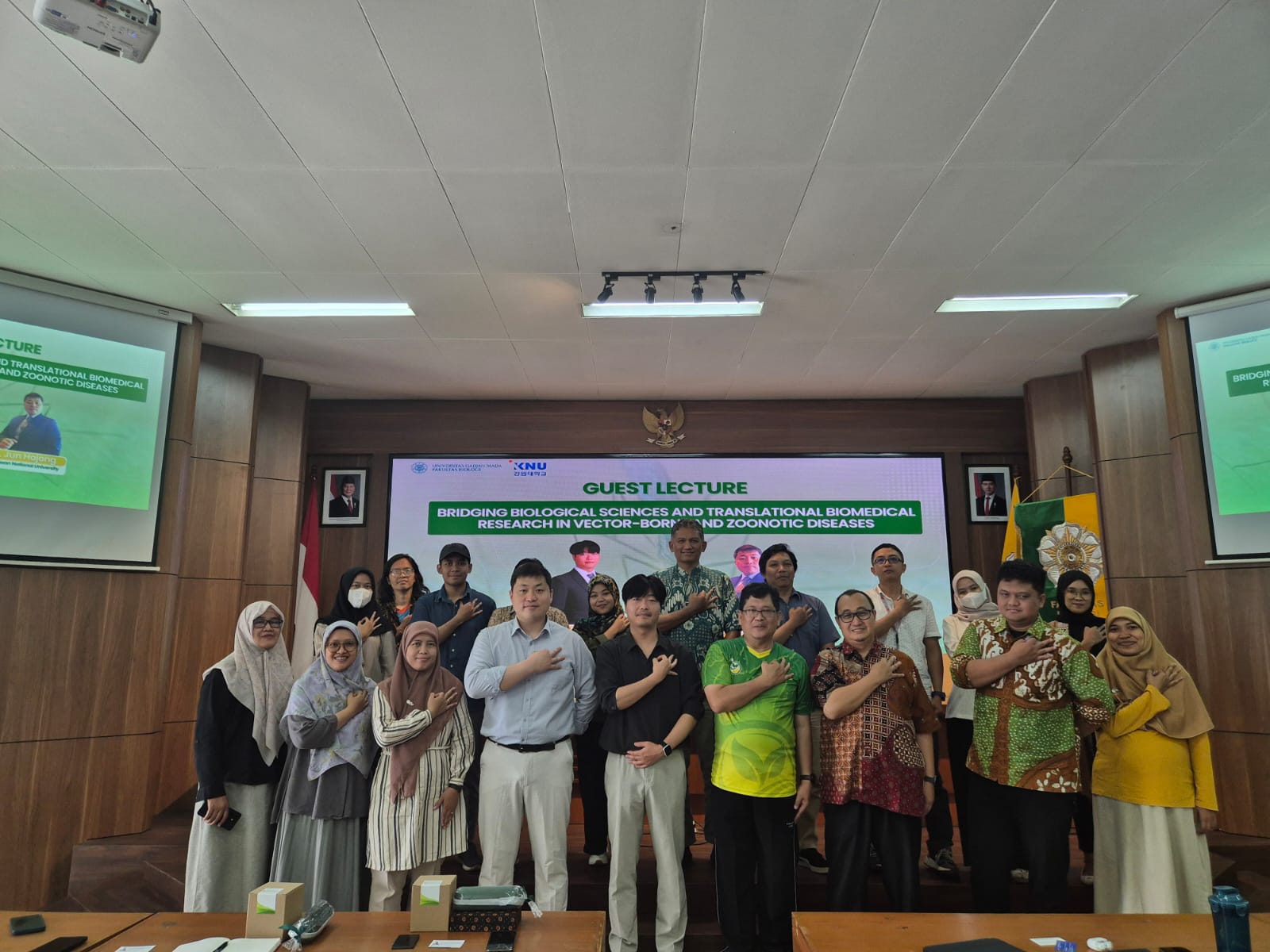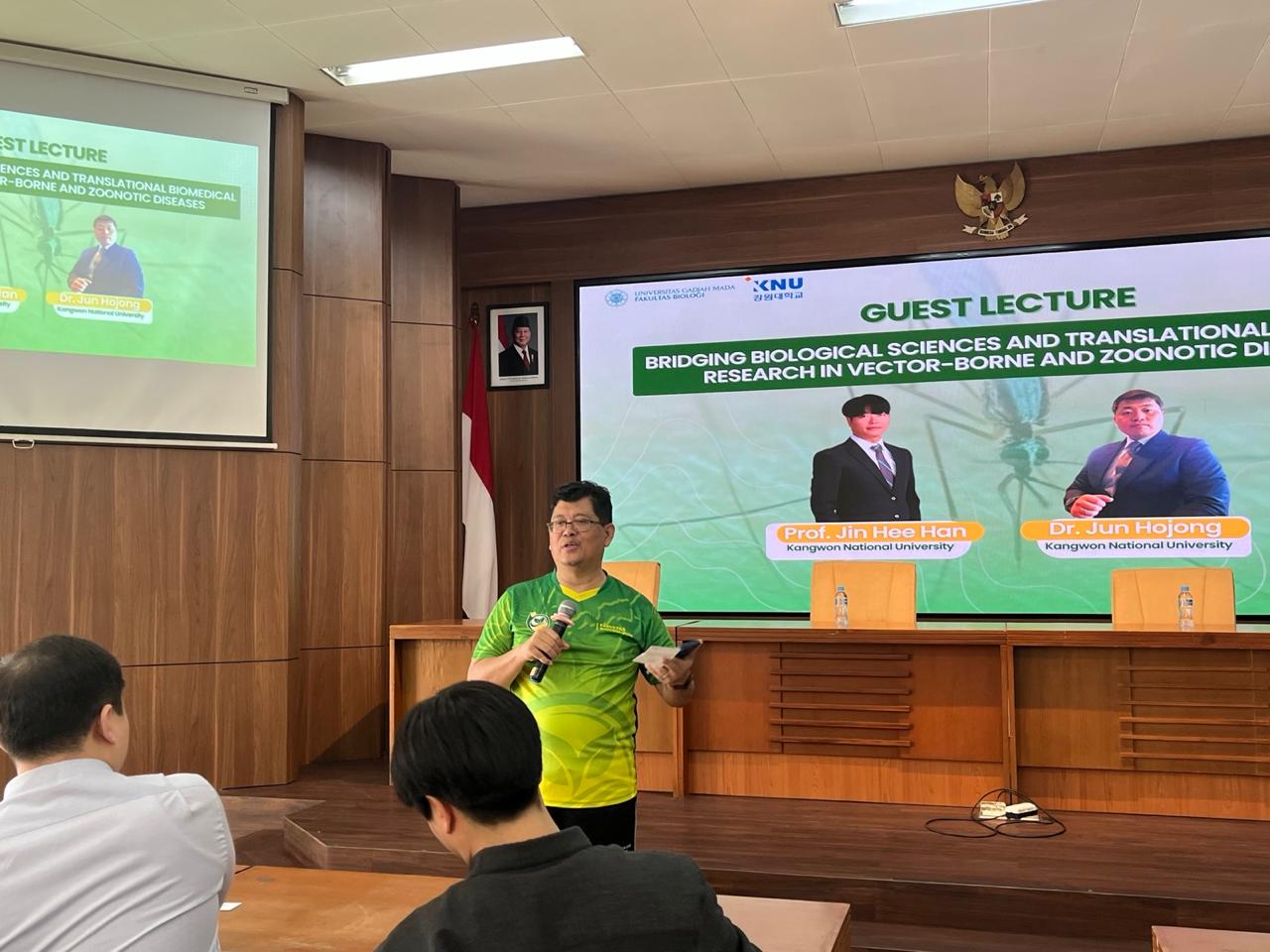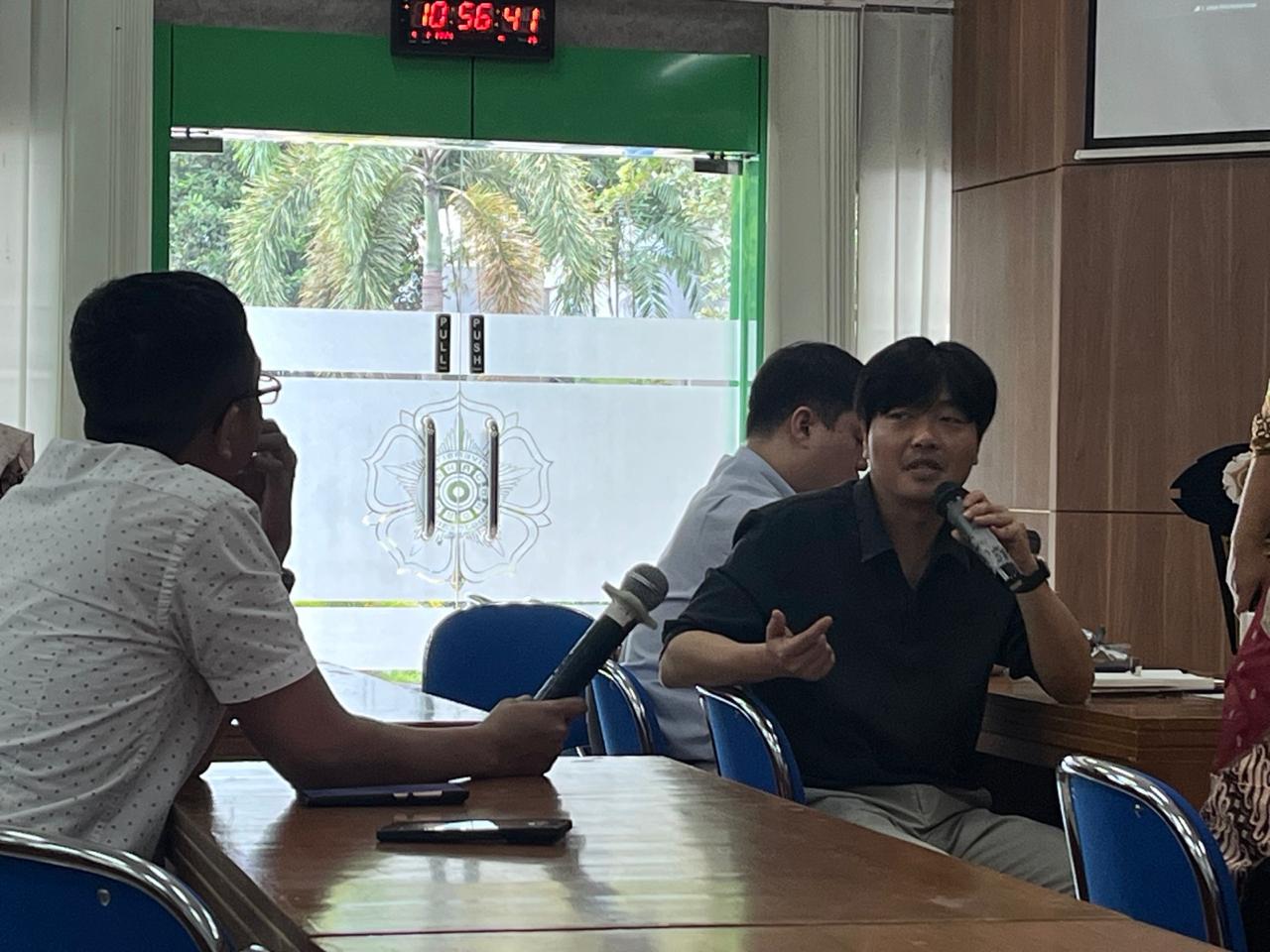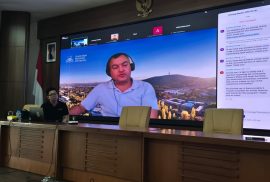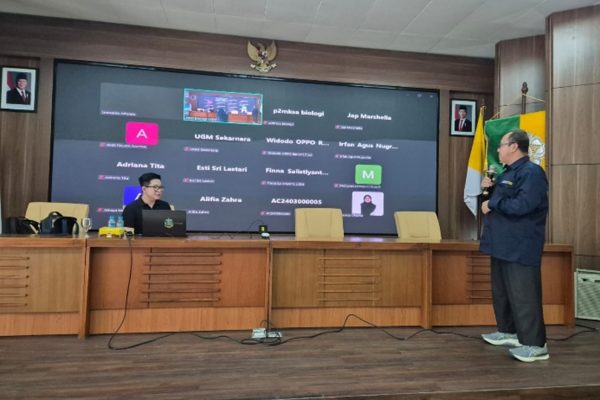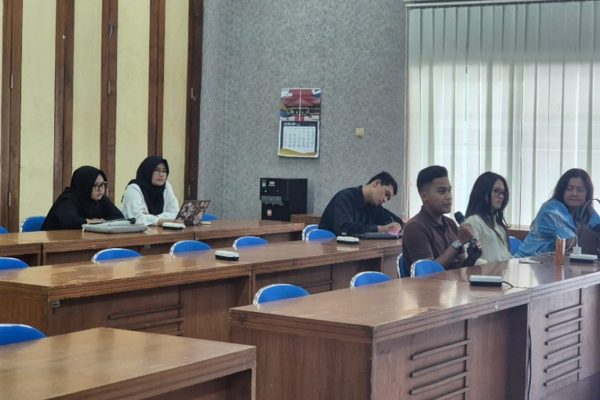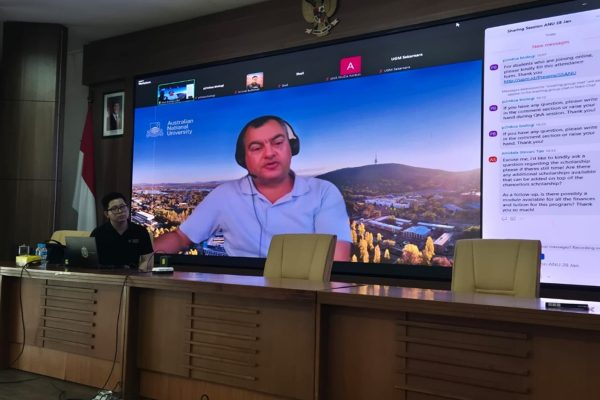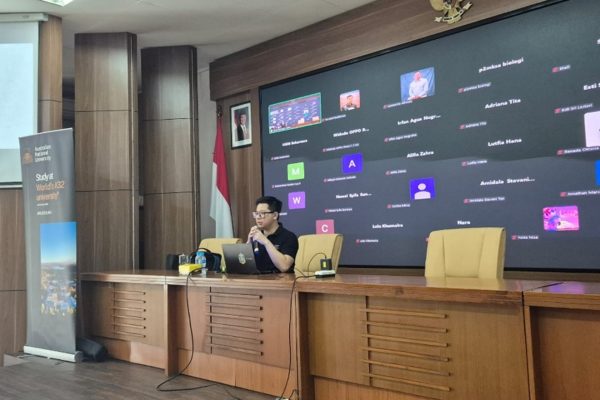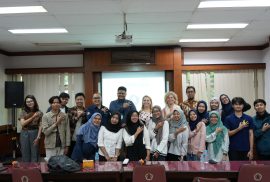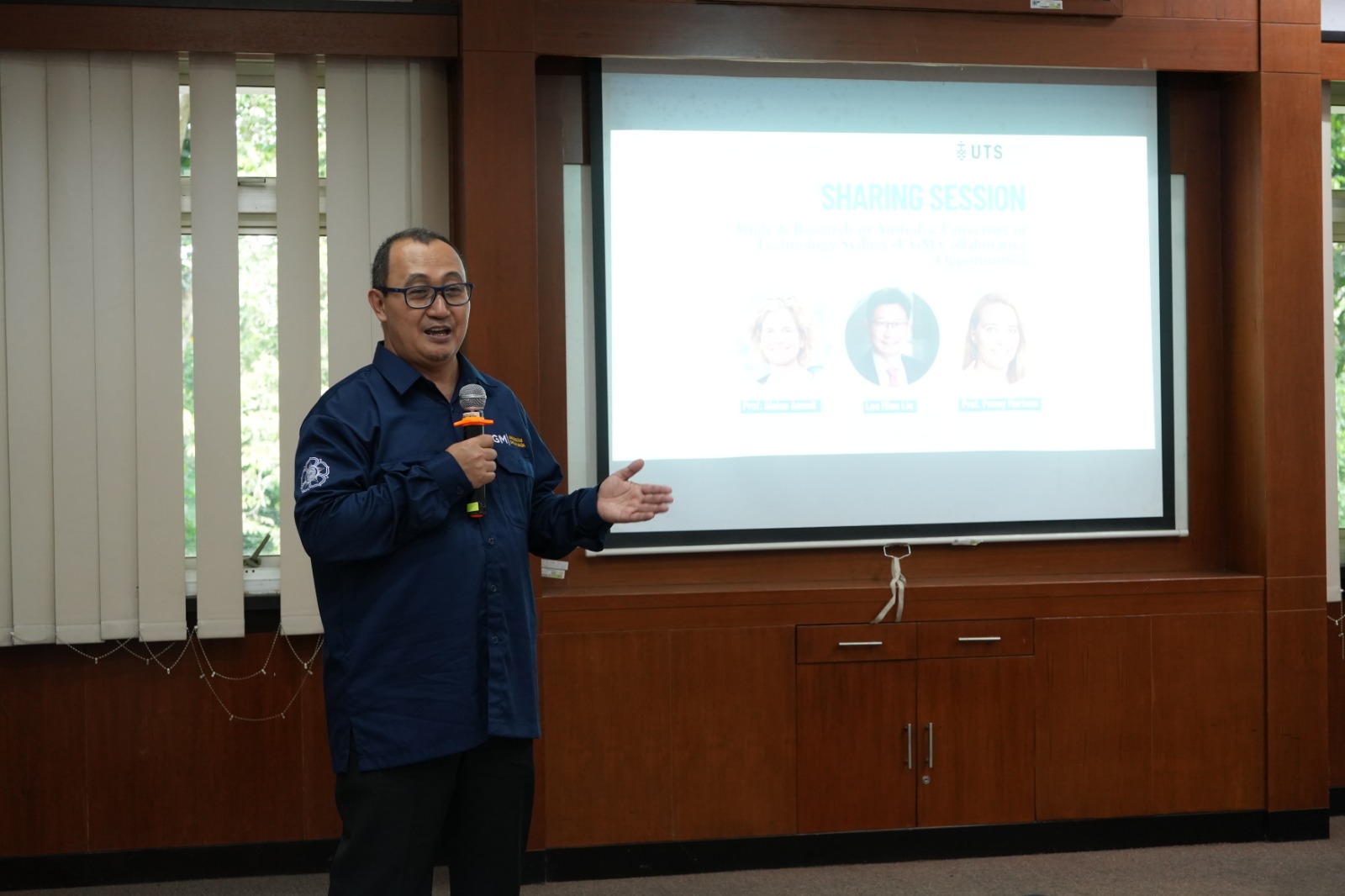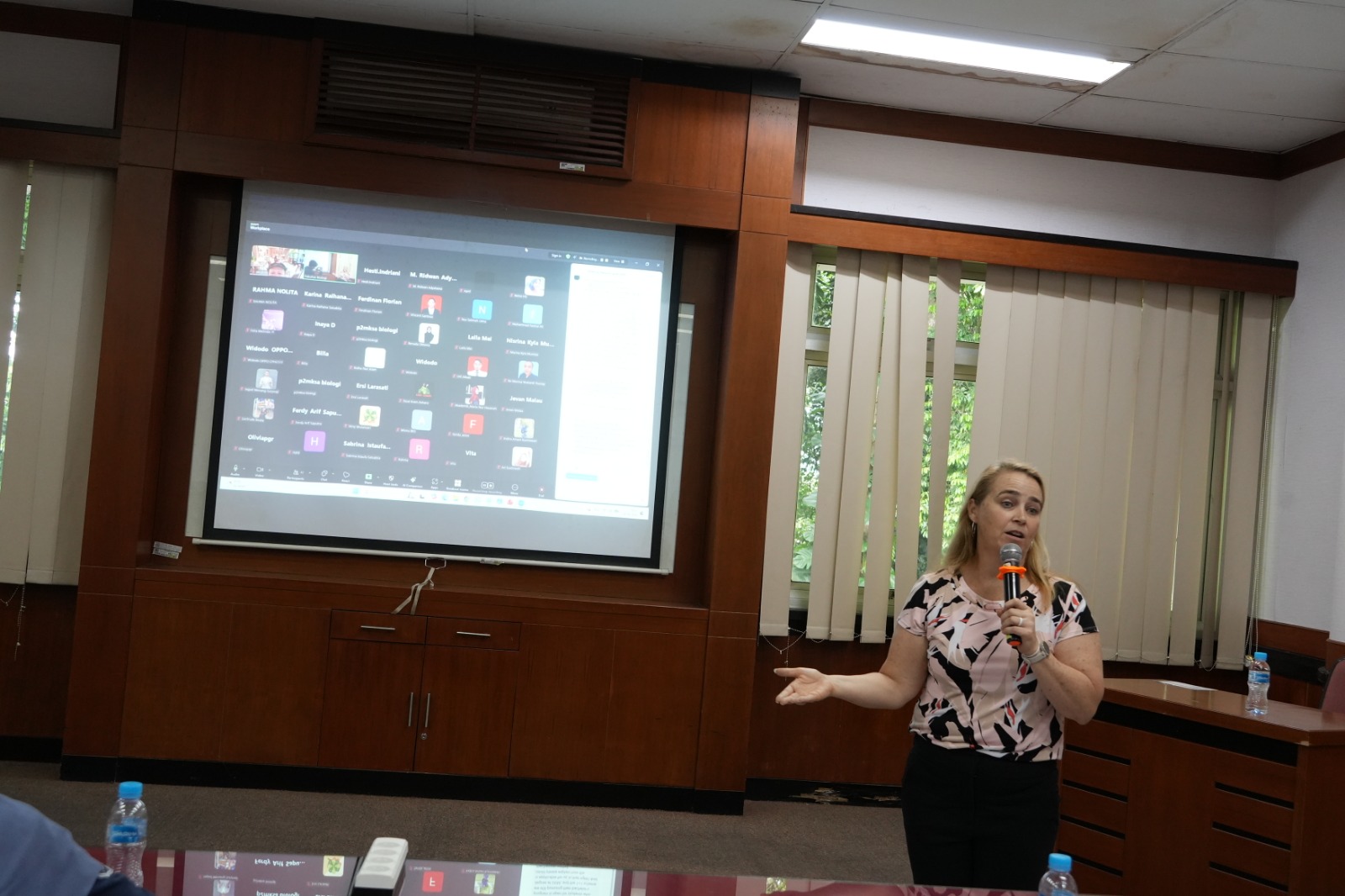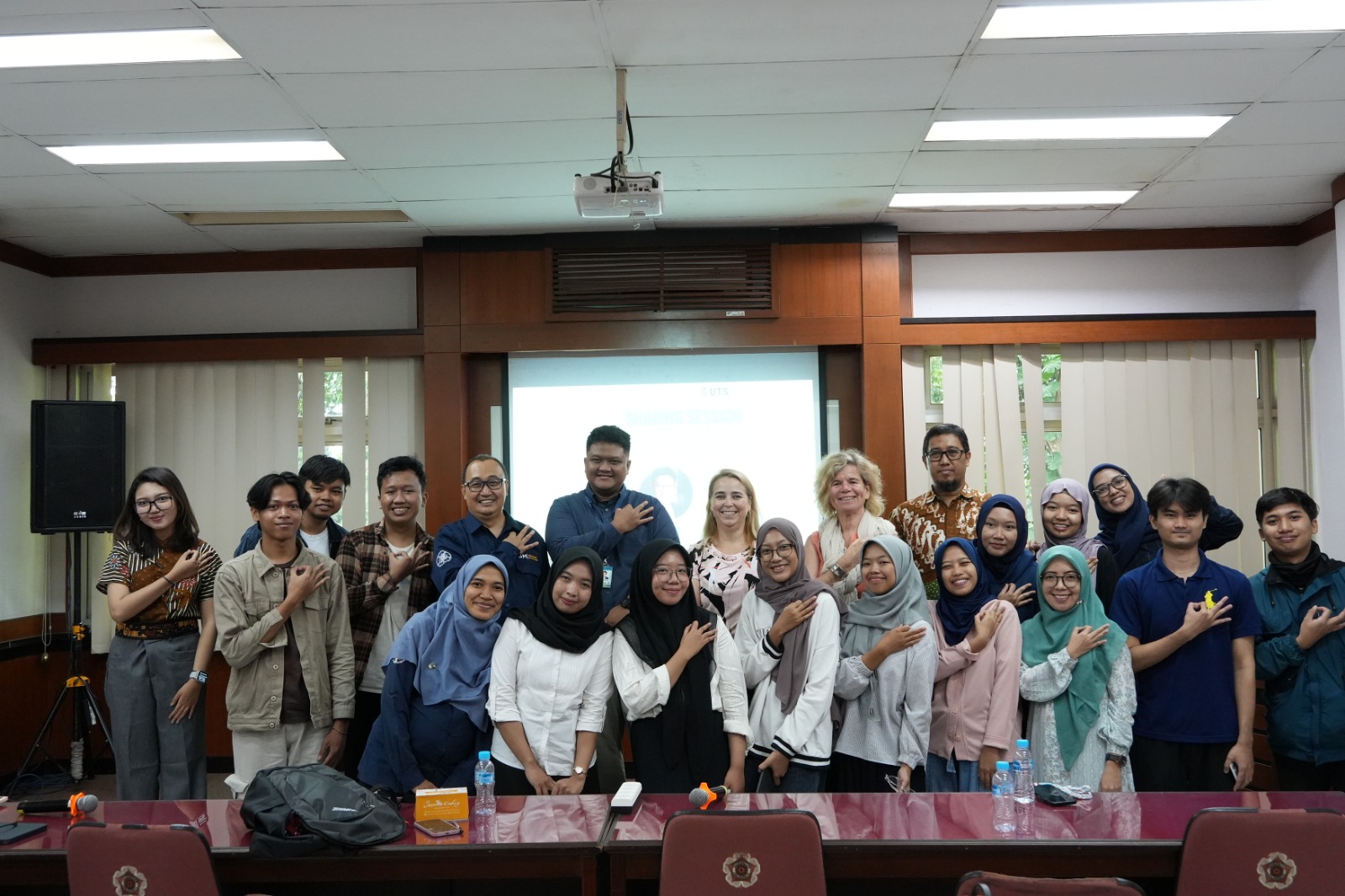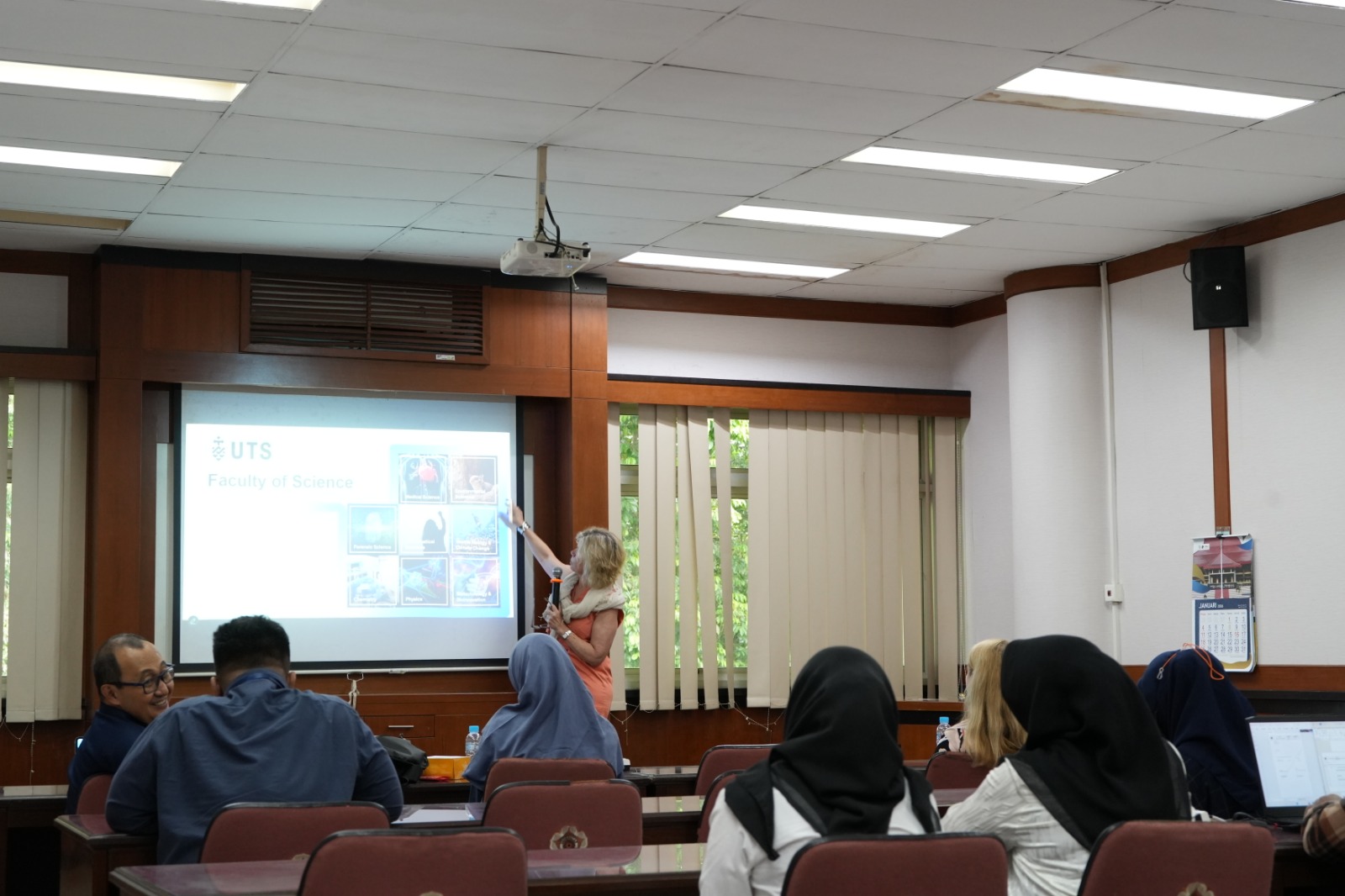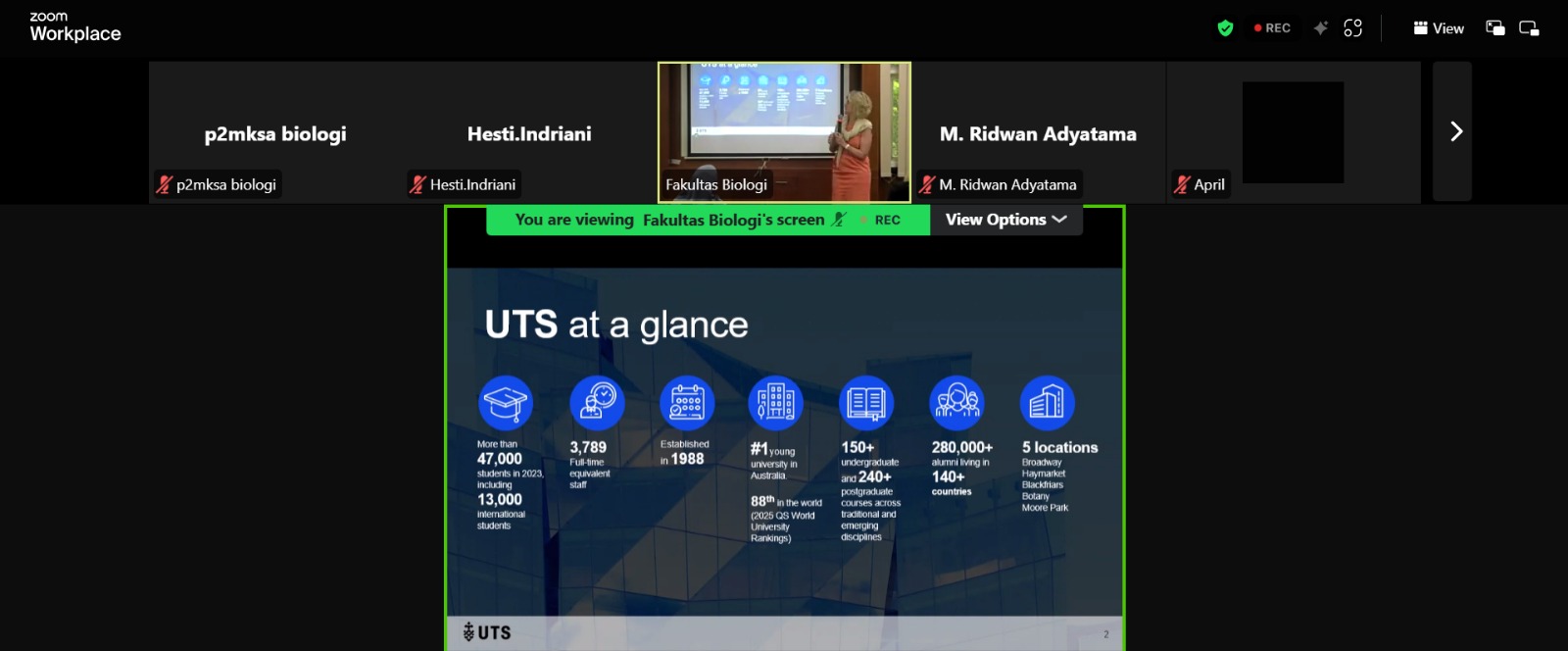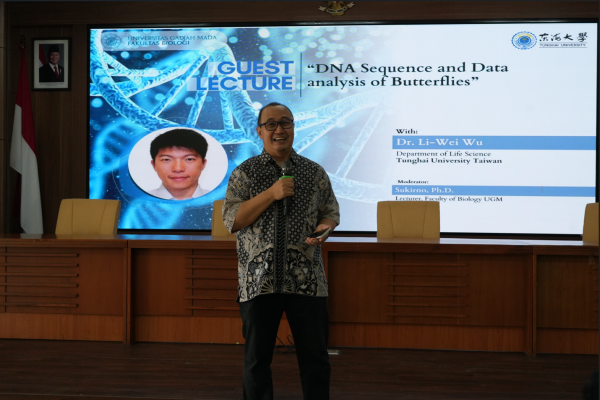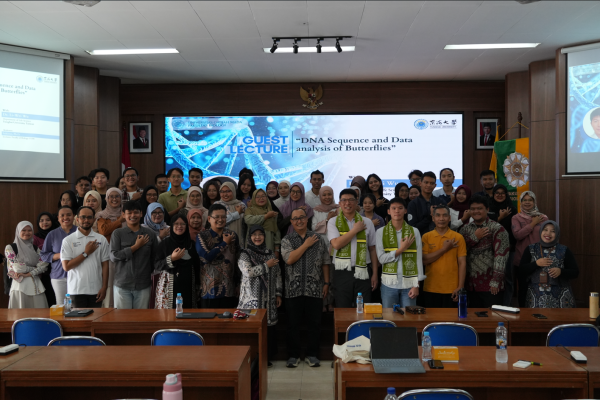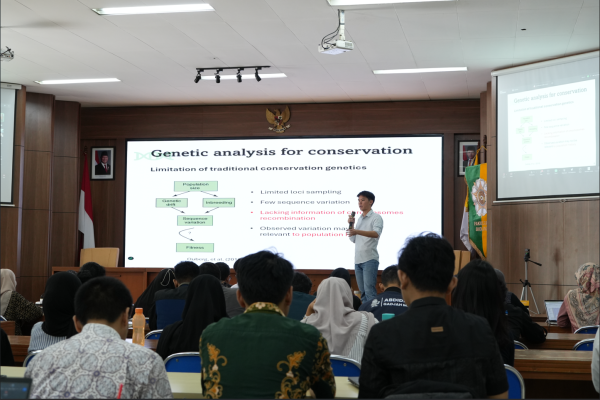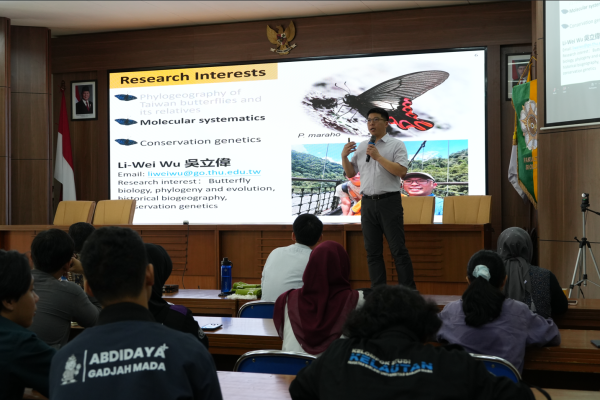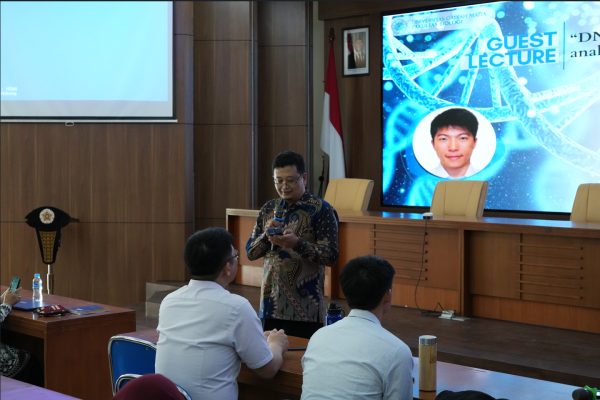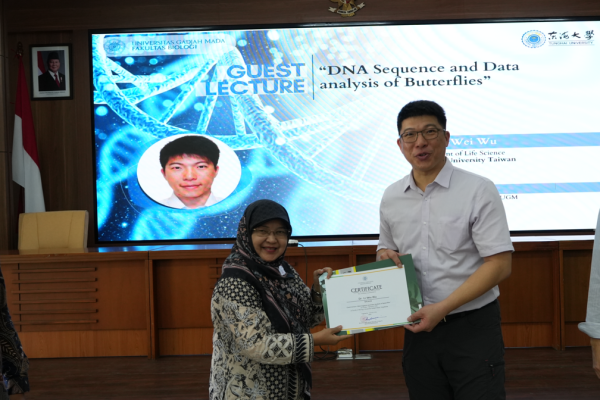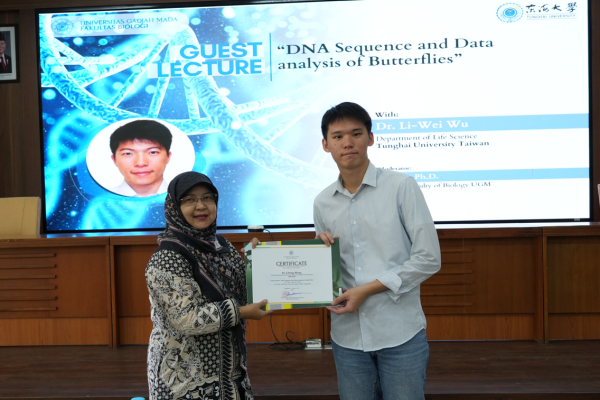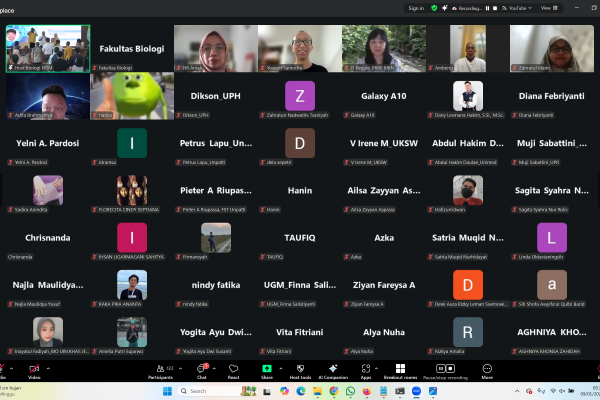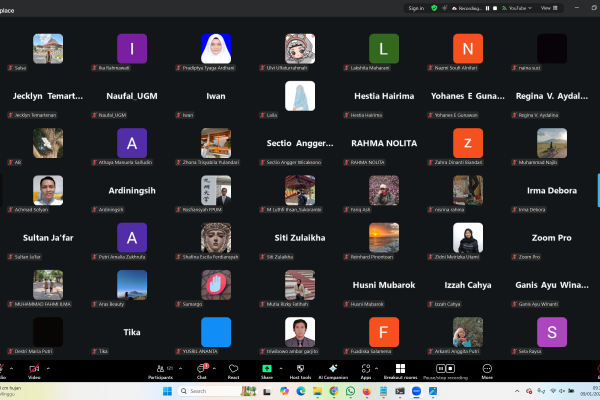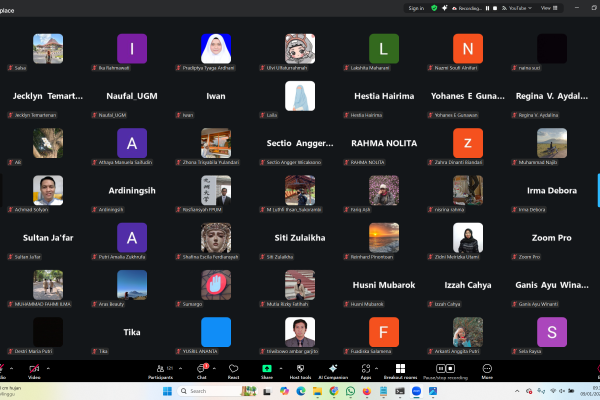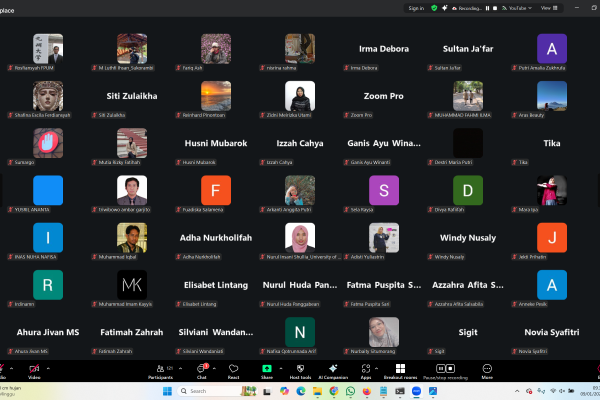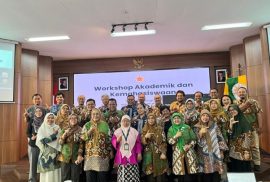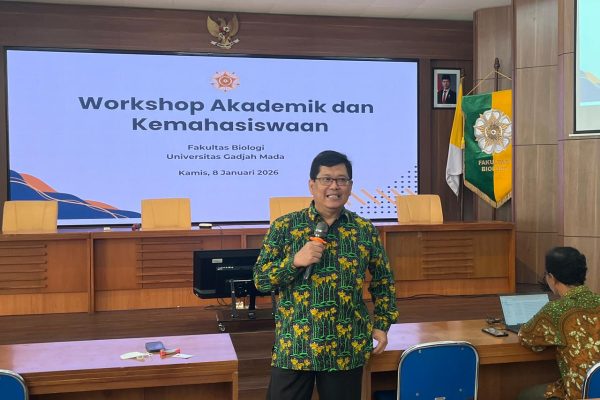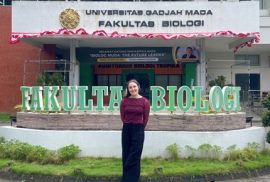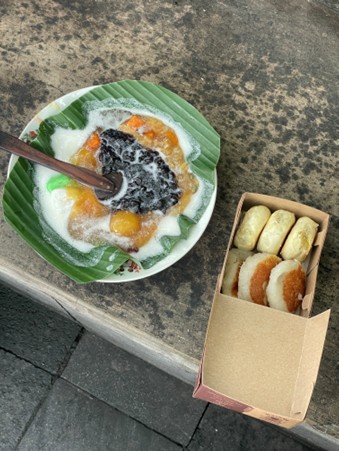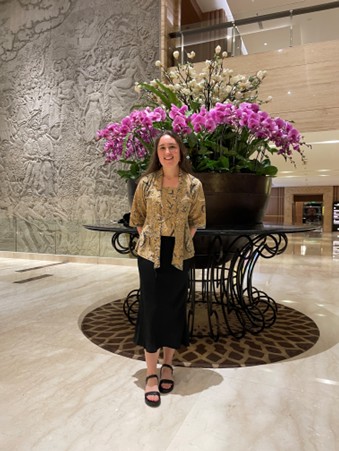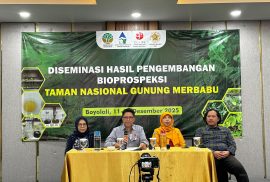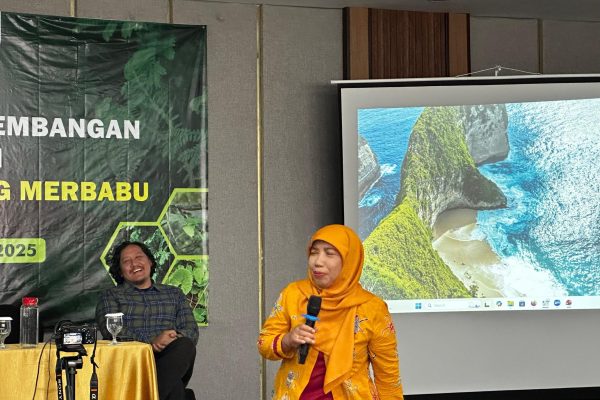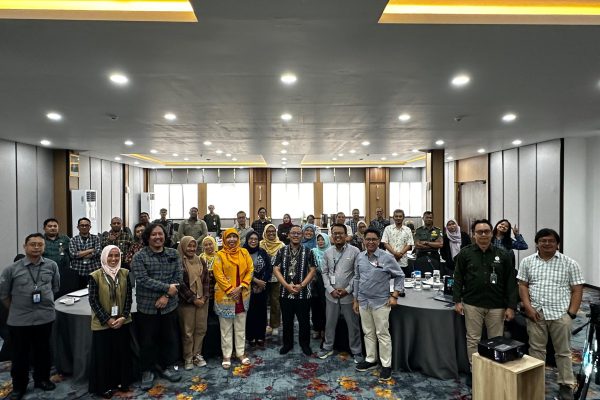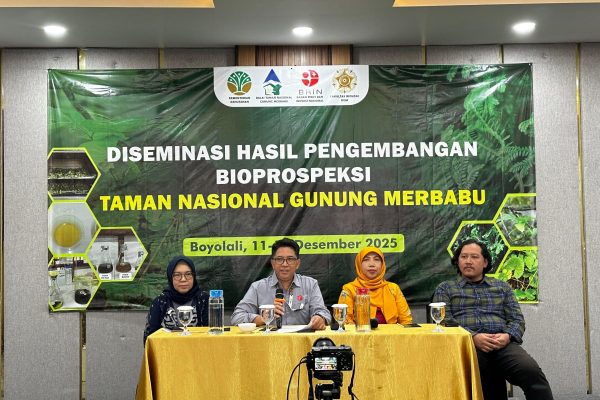Arsip:
SDG 17 : Build Partnerships for the Goals
The Faculty of Biology, Universitas Gadjah Mada (UGM), organized the Open House and Introduction to Research Topics (BIOENTRI) 2026 on Monday to Thursday, February 9–12, 2026, from 1:00 to 4:00 PM WIB. The event took place in Lecture Rooms 1, 2, and 3, as well as in the Teaching Laboratory of the Faculty of Biology UGM. It was designed to introduce the range of research topics available within the Faculty and to provide a platform for direct interaction between lecturers and students regarding research opportunities for undergraduate thesis work.
BIOENTRI 2026 became a dynamic and well-attended forum, reflected in the strong enthusiasm of participants. In addition to the primary target group of undergraduate students preparing to determine their thesis topics, the event also drew participation from students across different cohorts, including the class of 2025 and postgraduate students, who attended the sessions, engaged in discussions, and explored potential research collaborations.
The program featured presentation sessions and discussions on research topics, with each lecturer allocated approximately 25 minutes to present and engage in dialogue regarding the research themes offered. The series of activities also included formally scheduled opening and closing sessions, marking the commencement and conclusion of BIOENTRI 2026.
Participants’ enthusiasm was also evident in the booth area organized by the committee. The booths were consistently crowded, reflecting the distinct creativity of each team, from the presentation of posters and research materials to the way scientific ideas were communicated, making discussions feel more engaging and accessible.
In accordance with the event guidelines, each booth was attended by two supervised students appointed by their respective lecturers, serving on the day their lecturer was scheduled to present. BIOENTRI is mandatory for undergraduate students of the 2024 cohort who are preparing to determine their Seminar or Thesis topics. Therefore, the program serves as an important platform for students to map their academic interests, understand the capacity of laboratories and research groups, and identify prospective supervisors.
Through both presentation sessions and booth discussions, students gained deeper insight into available research opportunities, interacted directly with potential academic advisors, and obtained valuable considerations in selecting topics aligned with their interests and future career plans. The event is also expected to foster motivation and inspire students to pursue their research process with greater dedication.
This activity was carried out well due to the collaboration between the student committee and the lecturer committee led by Prof. Dr. Eko Agus Suyono, S.Si., M.App.Sc., so that the entire BIOENTRI 2026 agenda ran smoothly and optimally.
Through BIOENTRI 2026, the Faculty of Biology at Universitas Gadjah Mada reaffirmed its commitment to strengthening a research ecosystem and experience-based learning environment that is inclusive and collaborative.
This spirit aligns with the advancement of the Sustainable Development Goals, particularly Quality Education (SDG 4) through the enhancement of research literacy and mentoring practices, Industry, Innovation and Infrastructure (SDG 9) through the introduction of strategic research topics, and Partnerships for the Goals (SDG 17) by fostering cross-level academic networks between lecturers and students to promote meaningful scientific contributions for society and the environment.
Yamagata, Japan – February 16, 2026 — Eighteen members of the Faculty of Biology, Universitas Gadjah Mada (UGM), consisting of 2 faculty members and 16 students, are participating in the Sakura Science Program 2026 hosted by Yamagata University, Japan. Several participants are funded by the Japan Sakura Science Program 2026, an international initiative designed to strengthen scientific collaboration and academic exchange between Japan and partner countries.
This program represents a significant step in expanding international cooperation in the fields of molecular biology, ecology, and biodiversity research, while providing participants with direct academic experience in a global research environment.
Academic Preparation Prior to Departure
The program began with an online preparatory session on Wednesday, February 11, 2026, delivered by Prof. Jun Yokoyama of Yamagata University. In this session, Prof. Yokoyama introduced the geographical characteristics and environmental conditions of Yamagata City, offering ecological context for the upcoming field and laboratory activities.
The session was followed by an introductory lecture on plant DNA extraction techniques, which will serve as the foundation for laboratory practice during the program.
Participants departed from Indonesia on Sunday, February 15, 2026, and arrived at Narita International Airport on the same day before continuing their journey to Yamagata.
Day One: Opening Lectures and Intensive Academic Sessions
The official program commenced on Monday, February 16, 2026, with an opening lecture by Prof. Jun Yokoyama, Program Manager of the Sakura Science Program at Yamagata University. He outlined the agenda for the seven-day program, running through February 22, 2026, which includes:
- Thematic lectures and academic discussions
- DNA extraction laboratory practice
- Phylogenetic tree construction
- Student presentations
- Visits to museums
- A field excursion to Mount Gassan
The academic atmosphere continued with a lecture by Prof. Yutaka Miyazawa, who presented on plant physiology, particularly the phenomenon of root hydrotropism — the directional growth response of plant roots to moisture gradients. His lecture enriched participants’ understanding of plant adaptation mechanisms to environmental conditions.
Following the morning sessions, participants enjoyed lunch at the university cafeteria, experiencing Japanese cuisine and campus culture as part of their international academic immersion.
Exploring Asian Insect Biodiversity
The afternoon session featured a lecture by Prof. Naoyuki Fujiyama, who discussed Asian insect biodiversity, with special emphasis on herbivorous lady beetles in Indonesia. He highlighted the application of DNA sequencing data in biodiversity studies and in determining the phylogenetic relationships of Indonesian herbivorous beetles.
The first day concluded with a lecture by Dr. Taisuke Kanao, focusing on termite diversity and the ecological roles of social insects in various ecosystems.
Strengthening Global Collaboration
The first day of Sakura Science Program 2026 was marked by enthusiastic participation and intensive academic exchange. Beyond enhancing scientific knowledge and laboratory skills, the program fosters stronger international collaboration between the Faculty of Biology UGM and Yamagata University.
Through this initiative, both institutions aim to deepen research partnerships, particularly in molecular biology, biodiversity, and ecological studies across East and Southeast Asia.
Cairo, 12 February 2026 — The Faculty of Biology, Universitas Gadjah Mada (UGM), conducted an official cooperation visit to Egypt, with key agendas at Badr University in Cairo (BUC) and Cairo University. The delegation was led by Prof. Dr. Budi Setiadi Daryono, M.Agr.Sc., Dean of the Faculty of Biology UGM, accompanied by Dr.rer.nat. Abdul Rahman Siregar, M.Biotech, Head of the Microbiology Laboratory, Faculty of Biology UGM.
At Badr University in Cairo, the delegation was formally welcomed by the President of BUC, Prof. Dr. Ashraf Mohamed El-Shihy, and the Dean of the Faculty of Veterinary, Food Nutrition and Biotechnology, Prof. Adel Abd El-Khaleq. The meeting focused on initiating several strategic academic programs, including the development of an International Summer Course, a Double Degree program, and the organization of an International Conference. The visit also marked the signing of a Memorandum of Understanding (MoU) and a Memorandum of Agreement (MoA) between the Faculty of Biology UGM and Badr University in Cairo, signifying a shared commitment to strengthening academic and research collaboration between the two institutions.
Meanwhile, the visit to Cairo University served as a continuation of the existing partnership. The UGM delegation was welcomed by Prof. Said El-Salamouny and Dr. Ibrahim. Discussions centered on the implementation of the International Summer Course on Tropical Biodiversity and Sustainable Development to be hosted by the Faculty of Biology UGM. Both institutions also explored opportunities for sending Cairo University students to pursue Master’s (M.Sc.) and Doctoral (Ph.D.) studies at the Faculty of Biology UGM. In addition, the collaboration will be strengthened through joint supervision, joint research, and joint publications.
Through this visit, the Faculty of Biology UGM reaffirmed its commitment to expanding global academic networks and fostering sustainable international collaboration in the fields of biology, tropical biodiversity, biotechnology, and sustainable development. The partnership is expected to enhance student and faculty mobility, promote high-impact collaborative research, and contribute to the achievement of the Sustainable Development Goals (SDGs), particularly SDG 4 (Quality Education), SDG 9 (Industry, Innovation, and Infrastructure), SDG 15 (Life on Land), and SDG 17 (Partnerships for the Goals).
Yogyakarta, 6 February 2026 — The Faculty of Biology, Universitas Gadjah Mada (UGM), organized an international guest lecture held in a hybrid format at the Tropical Biology Auditorium, Faculty of Biology UGM, and broadcast online via Zoom Meeting. The event was attended by lecturers and students of the Faculty of Biology UGM, BRIN colleagues as well as participants from various universities across Indonesia.
The guest lecture featured two distinguished speakers from Kangwon National University, South Korea: Prof. Jin Hee Han and Dr. Jun Hojong. The event commenced with opening remarks by the Dean of the Faculty of Biology UGM, Prof. Dr. Budi Setiadi Daryono, M.Agr.Sc., who expressed his appreciation for the successful organization of the event and warmly welcomed the speakers and participants. He also highlighted that this marked the first visit of Prof. Jin Hee Han and Dr. Jun Hojong to Yogyakarta and UGM, emphasizing the importance of strengthening international academic engagement.
The session was moderated by Matin Nuhamunada, Ph.D., Head of the Office of International Affairs, Faculty of Biology UGM, who is also a lecturer and researcher at the Biotechnology Laboratory. The first presentation was delivered by Prof. Jin Hee Han, titled “Mosquitoes-Based Flavivirus Monitoring in Korea,” which discussed surveillance strategies for flavivirus detection through mosquito-based monitoring systems and their implications for public health preparedness.
The second presentation was delivered by Dr. Jun Hojong under the title “Ligand Receptor Interactions Underlying Human Adaptation on Non-Laverania Malaria Parasites.” His talk explored molecular mechanisms of host–parasite interactions, providing insights into human adaptation and the evolutionary dynamics of malaria parasites beyond the Laverania subgenus.
Through this international guest lecture, the Faculty of Biology UGM reaffirmed its commitment to strengthening global academic collaboration and advancing research in infectious diseases, biotechnology, and public health. The discussion and knowledge exchange during the event contribute to the achievement of the Sustainable Development Goals (SDGs), particularly SDG 3 (Good Health and Well-being), SDG 4 (Quality Education), and SDG 17 (Partnerships for the Goals). It is hoped that this initiative will foster future collaborative research, academic exchange, and joint innovation between UGM and Kangwon National University, as well as other international partners.
Yogyakarta, 28 January 2026 — The Faculty of Biology, Universitas Gadjah Mada (UGM), held a sharing session entitled UGM–ANU Double Degree Program: Pathways to Global Academic Excellence on Tuesday, 28 January 2026. The event featured Firman Prayogo from the International Strategy & Future Students Division, The Australian National University (ANU), as the main speaker. The sharing session was conducted in a hybrid format, taking place at the Tropical Biology Auditorium, Faculty of Biology UGM, and via Zoom Meeting.
The event was officially opened by Prof. Dr. Eko Agus Suyono, M.App.Sc., Vice Dean for Research, Community Service, Cooperation, and Alumni of the Faculty of Biology UGM. In his opening remarks, he emphasized that this program provides an excellent opportunity for students to explore their potential and gain learning experiences at one of the world’s leading universities.
The session was moderated by Matin Nuhamudana, Ph.D., Head of the Office of International Affairs, Faculty of Biology UGM. At the beginning of the session, Leonardo Alfonzo, Regional Manager for International Relations and Partnerships – STEMM ANU, also joined virtually to express his support for the long-standing collaboration between UGM and ANU, particularly in academic collaboration.
In his presentation, Firman Prayogo introduced The Australian National University, covering its institutional history, academic programs, research strengths, and double degree opportunities for undergraduate programs, particularly in the field of Biology. He also explained various scholarship schemes and financial support options available to students during their studies at ANU.
Students participating both onsite and online showed strong enthusiasm by actively engaging in the session and taking part in an interactive question-and-answer discussion.
Through this sharing session, the Faculty of Biology UGM aims to enhance students’ readiness to engage in the global academic environment through the UGM–ANU double degree program, which strengthens academic capacity, international networks, and graduate competitiveness. This activity also supports the achievement of SDG 4 (Quality Education) and SDG 17 (Partnerships for the Goals) by promoting access to high-quality higher education and fostering sustainable global partnerships.
Yogyakarta, 21 January 2026 — The Faculty of Biology, Universitas Gadjah Mada (UGM), organized a Sharing Session on Study & Research in Australia: University of Technology Sydney–UGM Collaborative Opportunities on Wednesday (21/1). The event was conducted online and hosted at the Upper Meeting Room of the Faculty of Biology UGM, with participants consisting of lecturers and students from the Faculty of Biology as well as other faculties within UGM.
The session was officially opened by Prof. Dr. Eko Agus Suyono, M.App.Sc., Vice Dean for Research, Community Service, Collaboration, and Alumni of the Faculty of Biology UGM. In his opening remarks, he highlighted that the collaboration between UGM and the University of Technology Sydney (UTS) has been established for several years, encompassing research collaboration and academic cooperation such as international summer course funded by New Colombo Plan and double degree programs. He expressed his hope that this session would serve as a valuable opportunity for students to explore international academic and research pathways.
The main session was moderated by Matin Nuhamunada, Ph.D., a lecturer at the Faculty of Biology UGM. The sharing session featured two distinguished speakers from the University of Technology Sydney: Prof. Alaina Ammit, Associate Dean (Research), Faculty of Science, UTS, and Prof. Penny Martens, Pro Vice-Chancellor (Higher Degrees by Research), UTS.
In her presentation, Prof. Alaina Ammit introduced the University of Technology Sydney and its research facilities, with particular emphasis on the Faculty of Science. This was followed by a presentation from Prof. Penny Martens, who outlined academic programs, research collaboration opportunities, and scholarship schemes, including funding opportunities through the Indonesia Endowment Fund for Education (LPDP). Both speakers also introduced the expertise of UTS lecturers and researchers, highlighting potential areas for collaboration with UGM students and academics.
Through this sharing session, it is expected that the collaboration between UGM and UTS will be further strengthened, not only in the fields of education and research but also in the development of globally competitive human resources. This initiative supports the achievement of the Sustainable Development Goals (SDGs), particularly SDG 4 (Quality Education) by expanding access to high-quality international education, SDG 9 (Industry, Innovation, and Infrastructure) through strengthened research and innovation, and SDG 17 (Partnerships for the Goals) by fostering sustainable global partnerships.
Yogyakarta, January 9, 2026 — The Faculty of Biology, Universitas Gadjah Mada (UGM), held an international guest lecture on Friday, January 9, 2026. The event was conducted in a hybrid format, taking place at the Tropical Biology Auditorium, Faculty of Biology UGM, and streamed online via Zoom Meeting. The lecture was attended by more than 200 participants, comprising lecturers and students from the Faculty of Biology UGM as well as participants from various universities across Indonesia.
The guest lecture featured two speakers from the Department of Life Science, Tunghai University, Taiwan, namely Dr. Li-Wei Wu and Dr. Bo-Cheng Wang, both of whom are active researchers in the fields of biodiversity and conservation genetics. The event commenced with an opening remark by Dr. Eko Agus Suyono, M.App.Sc., Vice Dean for Research, Community Service, Collaboration, and Alumni Affairs of the Faculty of Biology UGM. In his speech, he expressed his appreciation for the successful organization of the event and warmly welcomed the speakers and participants. He also highlighted that the Faculty of Biology UGM is home to many experts in entomology and genetics, and expressed hope that this guest lecture would serve as a starting point for future research and academic collaborations.
The session was moderated by Sukirno, Ph.D., Chair of the Undergraduate Study Program at the Faculty of Biology UGM, who is also a lecturer and researcher at the Entomology Laboratory. The first presentation was delivered by Dr. Li-Wei Wu, entitled “Applying DNA Sequence and Data Analysis of Butterflies to Biodiversity and Evolutionary Researches.” His presentation focused on the phylogeography of Taiwanese butterflies and their relatives, molecular systematics, and conservation genetics, providing a comprehensive overview of the use of molecular data in evolutionary and biodiversity studies.
The second presentation was delivered by Dr. Bo-Cheng Wang, entitled “Is an Endangered Species Truly at Risk?” In his talk, Dr. Wang discussed the results of whole-genome resequencing research on the broad-tailed swallowtail butterfly (Papilio maraho), aimed at assessing the species’ extinction risk more accurately using genomic-based data.
Throughout the lecture and discussion sessions, participants demonstrated strong enthusiasm, as reflected in the lively questions and interactive discussions. Through this activity, the Faculty of Biology UGM hopes to strengthen international networks, open opportunities for research collaboration, academic exchange, and capacity building in the fields of biodiversity and conservation genetics. This initiative also supports the achievement of the Sustainable Development Goals (SDGs), particularly SDG 4 (Quality Education) through the enhancement of quality education based on global collaboration, SDG 15 (Life on Land) through biodiversity conservation efforts, and SDG 17 (Partnerships for the Goals) by strengthening international partnerships in education and research.
Yogyakarta, 8 January 2026 — The Faculty of Biology, Universitas Gadjah Mada (UGM), held the Academic and Student Affairs Workshop 2026 at the Tropical Biology Auditorium, KPTU Building, 1st Floor. The workshop was attended by all academic staff of the Faculty of Biology UGM as part of continuous efforts to strengthen the quality of higher education in alignment with the Sustainable Development Goals (SDGs).
The workshop was officially opened by the Dean of the Faculty of Biology UGM, Prof. Dr. Budi Setiadi Daryono, M.Agr.Sc., who emphasized the importance of academic synergy in curriculum renewal, quality assurance, and the development of adaptive, inclusive, and sustainable learning systems. These efforts reflect the Faculty’s commitment to SDG 4 (Quality Education) through the provision of high-quality and relevant higher education.
In the main session, the Vice Dean for Academic and Student Affairs, Prof. Dr. Bambang Retnoaji, S.Si., M.Sc., presented the 2025 Academic and Student Affairs Key Performance Targets, focusing on the enhancement of learning outcomes, the strengthening of programme recognition, and the expansion of access to higher education. These initiatives contribute to SDG 4 and support innovation in academic governance in line with SDG 9 (Industry, Innovation, and Infrastructure).
The workshop also featured a refreshing session on the Outcome-Based Assessment Information System (SIOBA) delivered by Zuliyati Rohmah, S.Si., M.Si., Ph.D.Eng., aimed at reinforcing the implementation of Outcome-Based Education (OBE). The OBE approach supports accountability, transparency, and continuous quality improvement in higher education, further advancing the Faculty’s contribution to SDG 4.
Subsequently, the workshop focused on monitoring, evaluation, and preparation for the upcoming semester across all academic levels. The undergraduate programme was presented by Sukirno, S.Si., M.Sc., Ph.D., followed by the master’s programme by Prof. Dr. Diah Rachmawati, S.Si., M.Sc., the professional programme by Prof. Dra. Tuty Arisuryanti, M.Sc., Ph.D., and the doctoral programme by Prof. Rina Sri Kasiamdari, S.Si., Ph.D. This cross-level academic discussion reflects strengthened internal collaboration and supports SDG 17 (Partnerships for the Goals).
Through this workshop, the Faculty of Biology UGM reaffirms its commitment to continuous academic improvement and to making meaningful contributions to the achievement of SDG 4 (Quality Education), SDG 9 (Industry, Innovation, and Infrastructure), and SDG 17 (Partnerships for the Goals) at both national and global levels.
The Faculty of Biology at Gadjah Mada University (UGM) was proud to host Layla McKenzie, a Bachelor of Science (Environmental Science) student from Deakin University, Melbourne, Australia, who recently completed the Biology International Undergraduate Program (IUP) exchange. Inspired by basic Indonesian language lessons in primary school and geographical proximity, Layla chose UGM based on recommendations for its strong international program and the rich culture of Yogyakarta—a city she confirms is excellent for students.
Relevant Learning and Warm Interaction
Layla described her academic experience at the UGM Faculty of Biology as “great.” She enjoyed attending classes and learning from UGM lecturers, finding the campus lovely and the classrooms comfortable. Her favorite course was Environmental Science due to its high relevance to her degree in Australia. She praised the engaging topics, the assigned tasks, and the lecturer, calling the class discussions enjoyable.
Uniquely, Layla highlighted a difference in teaching style: “I find the lecturers here are more approachable compared to my home university, and there was more engagement with the students attending the lectures.”
Falling in Love with the Culture and Warm Welcome of Yogyakarta
Layla’s first impression of Yogyakarta and UGM was one of instant adoration. She praised the beauty of the UGM campus, with its many trees and cafes perfect for studying, as well as the warmth and welcoming nature of everyone she met. The UGM Biology team was also noted for being quick to answer questions and ensuring the students had everything needed to settle in. She described Yogyakarta as a city rich in culture and history.
The local cultural experiences left a strong impression, particularly the culinary scene. Layla loved eating at local warungs and getting to know the Ibu’s (mothers) at each one, who were quick to look after her and her friends. She even has favorite dishes she called “enak banget!” (very delicious!): lotek at Jasmine Corner and nasi pecel at Warung Santai. Beyond food, she enjoyed watching dance performances and visiting the beautiful temples in the surrounding areas.
Unforgettable Moments Beyond the Classroom
When asked about an “only in Indonesia” or “only in Yogyakarta” moment, Layla mentioned the surreal feeling of sitting on the back of a Gojek at night, zooming through the streets, and reflecting on the fact that she was living in Indonesia. Another spectacular moment she recalls is seeing the lava erupt at Mount Merapi, alongside many wholesome experiences of sharing meals with local people.
Outside of academics, Layla took the opportunity to travel extensively across Indonesia. Her trips included visiting Banda Aceh in Sumatra, seeing orangutans in Kalimantan, snorkeling at Karimunjawa, hiking at Salatiga, and witnessing the blue fire at Ijen. She also engaged in cultural activities, such as learning how to make batik and its history at Kota Gede.
Advice for Future Exchange Students
For future international students interested in the UGM exchange program, Layla offered some encouraging advice:
“Attend any social events organised by the university, and try to join some form of club. Try as much local food as you can and don’t be nervous about getting sick, it’s very aman (safe)! Make sure you say yes to any opportunity to experience or learn something new!”
Layla McKenzie summed up her entire UGM experience in three words: “Educational, memorable, and epic!”
Boyolali, 11–12 December 2025 — The Mount Merbabu National Park Authority (Balai Taman Nasional Gunung Merbabu) organized the Dissemination of Bioprospecting Development Results at Front One Boutique Adria, Boyolali. The event served as a platform to present research findings and scientific studies on the potential of medicinal plants in the Mount Merbabu area, supporting the sustainable utilization of biological resources.
The dissemination featured two speakers from the Faculty of Biology, Universitas Gadjah Mada (UGM): Prof. Dr. Ratna Susandarini, M.Sc. and Dr. Tri Rini Nuringtyas, S.Si., M.Sc. Participants included the Head of Mount Merbabu National Park and staff, representatives from the Environmental Agency (DLH), as well as officials from the Ministry of Environment who joined the event online via Zoom.
In her presentation, Dr. Tri Rini Nuringtyas, S.Si., M.Sc. delivered research results on phytochemical profiling and evaluation of product development potential based on Centella asiatica and Selaginella. The study highlighted the presence of bioactive compounds and the prospects for developing value-added products derived from local biodiversity.
Meanwhile, Prof. Dr. Ratna Susandarini, M.Sc. presented the results of an ethnobotanical study conducted as a scientific basis for the preparation of the Medicinal Plants of Mount Merbabu book. This research documents local knowledge related to the use of medicinal plants while contributing to the preservation of traditional knowledge in harmony with conservation efforts within the national park.
Overall, ethnobotanical and bioprospecting research on plants in Mount Merbabu provides an important scientific foundation for sustainable resource utilization and plant conservation. This activity also represents the outcome of a long-standing collaboration between the Faculty of Biology UGM and the Mount Merbabu National Park Authority in research, conservation, and biodiversity utilization. The initiative aligns with the Sustainable Development Goals (SDGs), particularly SDG 3 (Good Health and Well-being) through the development of medicinal plant potential, SDG 15 (Life on Land) through biodiversity conservation efforts, and SDG 17 (Partnerships for the Goals) through strengthened institutional collaboration.

